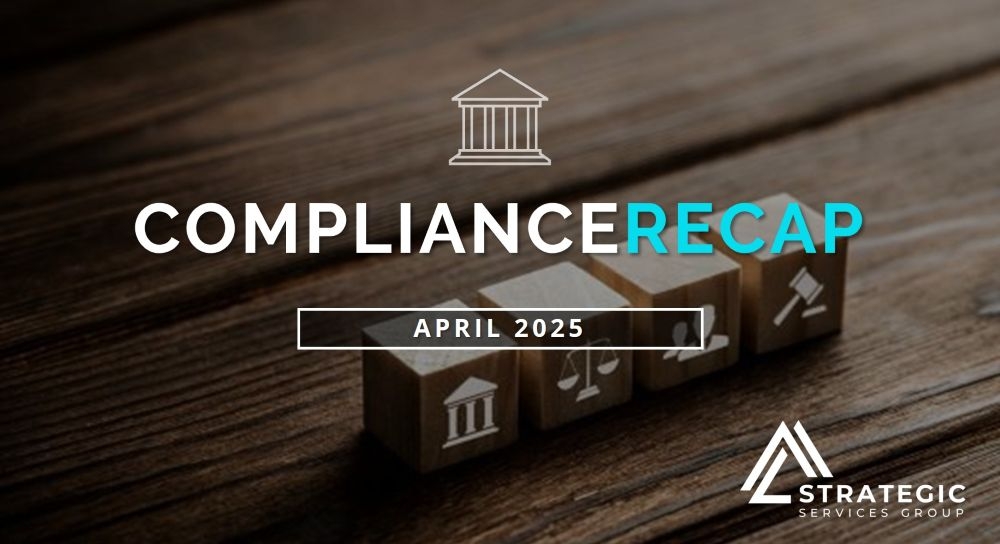April 2025 - SSG Compliance Recap

The DOL released an updated version of the CHIP Model Notice and filers can use IRS Form 8928 to Report Certain Excise Tax.
DOL Releases New 2025 Chip Model Notice
The U.S. Department of Labor (DOL) has released an updated version of the Children’s Health Insurance Program (CHIP) model notice.
Under the Children’s Health Insurance Program Reauthorization Act of 2009 (CHIPRA), employers that sponsor group health plans are required to provide an annual CHIP notice to employees who reside in states offering premium assistance under Medicaid or CHIP programs. This requirement is based on the location of eligible employees, not the employer’s physical address.
Employer Considerations
Employers are not required to use the DOL’s model notice. Many opt to tailor the content to their workforce by:
- Including only the relevant state-specific information
- Incorporating company branding and formatting
- Embedding the notice into benefit guides or other plan documents
There is also no prescribed delivery method, as long as the notice reaches all employees who are, or may become, eligible for the group health plan and who live in states with available premium subsidies. Distribution often takes place during open enrollment or as part of a Wrap Summary Plan Description but must also occur upon hiring new employees.
Regardless of the method used, employers must distribute the CHIP notice annually to comply with federal law. Timely and accurate dissemination is key to ensuring employees are informed of their potential eligibility for premium assistance.
IRS Form 8928 Due to Report Certain Excise Tax
Employers and plan administrators self-report excise tax due for failure to comply with various group health plan requirements, including requirements related to the ACA, COBRA, HIPAA, mental health parity, and the comparable contribution requirement for health savings accounts (HSAs), using IRS Form 8928.
Question of the Month
Q: Do groups need to file and pay PCORI fees if they offer an FSA? Do groups have to file twice if group benefits run on calendar year, but the renewal and FSA run on different months? For example, a May 1 level-funded group with a medical plan that runs calendar year has an FSA that runs May 2025 through April 2026. Does the employer need to file two?
A: In short, an FSA is not subject to the PCORI fee if it is an excepted benefit. This means the employer cannot contribute more than $500 to the FSA (unless it is structured as a match) and employees eligible for the FSA must be eligible for the company’s group health plan. If the FSA meets these requirements, no PCORI fee is due.
In the second question, if the FSA is excepted, then no PCORI is needed, regardless of whether it operates on a different plan year. The level funded plan will need to pay the PCORI fee.
If the employer had an HRA and a level funded plan (i.e., two self-funded plans), or an FSA that is NOT excepted and a level-funded plan, two PCORI fees are due unless the two plans have the same employer-sponsor and operate on the same plan year.
The IRS has provided a helpful chart for applying the PCORI fee to various types of health coverage.
Answers to the Question of the Week are provided by Kutak Rock LLP. Kutak Rock provides general compliance guidance through the UBA Compliance Help Desk, which does not constitute legal advice or create an attorney-client relationship. Please consult your legal advisor for specific legal advice.
SOURCE: United Benefit Advisors (UBA)

 Prev
Prev

